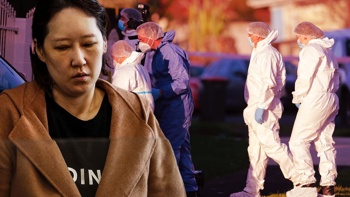The largest study of its kind in New Zealand has shown how boosting gives us a significant top-up against all variants – including Omicron - after a second dose of the vaccine.
The latest data out of the collaborative Ka Mātau, Ka Ora study showed a booster gave strong vaccine-induced responses to neutralise viral variants across all demographic groups, following a period of waning immunity.
“The results are a clear call to action to the nearly one million New Zealanders eligible but yet to get their first booster,” said Dr Maia Brewerton, clinical director of Vaccine Alliance Aotearoa New Zealand – Ohu Kaupare Huaketo (VAANZ) which led the study.
“Vaccination continues to be one of the best tools we have for protecting ourselves and our whānau from getting really sick from COVID-19.
“But two doses isn’t enough – at least one booster dose is key against Omicron, particularly for people vulnerable to more severe COVID-19 disease, including our Māori and Pasifika populations.”
Brewerton said the study also demonstrated the difference a booster dose can make for people with type-2 diabetes, with participants with diabetes experiencing a four-fold increase in antibody levels after a booster dose compared to a two-fold increase seen in participants without diabetes.
“For people with type-2 diabetes, the booster corrects the deficiencies in antibody levels we were seeing compared to the general population after only two doses of the vaccine.”
Age remained a factor in level of response to a booster vaccination with older populations having a reduced but adequate overall response compared to younger groups, but still demonstrating an improvement in immune response.
Initial results from the study published in April, showed near universal strong immune responses to the vaccine in participants after two doses, but an absence of neutralising capacity against Omicron.
The latest results sought to evaluate the effect of a third (booster) dose, with samples collected 28 days after participants received their first booster.
- Covid cases expected to surge over holidays
- Covid-19: Beware the Christmas Grinch
- Covid-19: Expect another month of higher rates- modeller
- Government says no plans at this stage for annual booster for most people
Brewerton said that, with less than six per cent of participants testing positive for prior infection with SARS-CoV-2, the study gives unique and important insight into vaccination response in a largely Covid-19 naïve population.
“Our data shows that a booster was and remains crucial without natural infection and hybrid immunity, to produce a neutralising response against Omicron regardless of age, BMI, ethnicity, or presence or absence of diabetes.
“This is particularly important for those vulnerable New Zealanders who have managed to avoid Covid-19 so far.”
Ongoing research as part of the study would monitor the difference seen in the immune response as participants develop infection-induced or hybrid immunity and as new variants arise.
“With variants becoming more transmissible and established in the New Zealand population, there is still more valuable data to come.”
Modellers estimate that most Kiwis – perhaps as many as eight in 10 - have now been exposed to the coronavirus since Omicron began washing through the population last summer.
While there’s now a wealth of longitudinal studies tracking immunity from vaccines and infection, relatively few have been carried out in New Zealand - one of the last countries to see widespread community transmission.
With nine in 10 Kiwis over 12 having received at least two doses, and seven in 10 having been boosted at least once, our population is also among the world’s most vaccinated.
For many, the neutralising antibodies they received since their last boost will have waned substantially.
But immune memory from vaccination, infection or both – namely in the form of virus-fighting T-cells and B-cells - would still be lingering to give some protection against the very worst outcomes of catching the virus.
Just how that immunity held up against increasingly tricky new Omicron subvariants – especially with the ever-present risk of long Covid – remained as one of the biggest questions facing scientists.
In another new study of more than 300 Kiwis, researchers at immunodiagnostics company Pictor plan to shed fresh light on the current New Zealand picture.
“We’re looking at antibody levels of people who’ve been vaccinated, and then seeing over time if those levels are changing because of vaccination, or what they look like if they get infected during that time,” said Pictor’s director of research and product development, Dr Natasha Gordon.
Particularly, the team wanted to learn whether there was a threshold in these levels, below which people were more likely to get infected.
The Pictor Antibody Clinical Trial (PACT-19), is tracking 231 participants who’ve been vaccinated, but been confirmed by serological antibody tests to never have been infected.
Running over six months, the study will also follow another 65 people who’ve been infected and vaccinated.
While overseas research has suggested that perhaps one quarter of people infected with the virus experience no symptoms, in this case, just six per cent of the study’s cohort were found to have had stealth cases.
The study will draw on Pictor’s own antibody test, PictArray, which can differentiate whether a patient has antibodies from a previous infection, or from vaccination alone.
It can also indicate whether vulnerable patients have failed to mount a detectable antibody response, despite vaccination or infection.
Pictor chief executive Howard Moore said that, while vulnerable people were eligible to get their second booster dose three months after – and ideally six months on - from their last one, immunity varied from person to person.
“That’s why our test is particularly relevant.”
The new study comes as Pictor and another local biotech company, Rako Science, have begun offering its new antibody test, Test2Detect, to the public.
The Government plans to launch its own seroprevalence study – something experts have been calling for throughout this year – in 2023.
Take your Radio, Podcasts and Music with you









